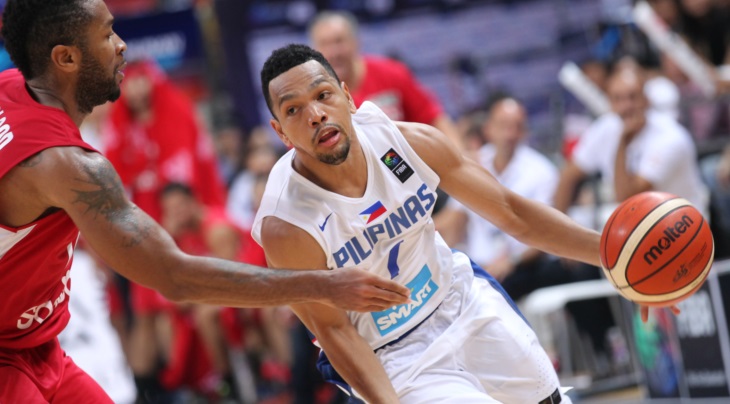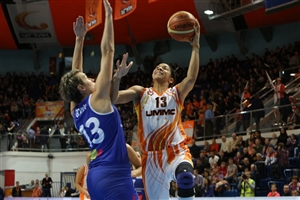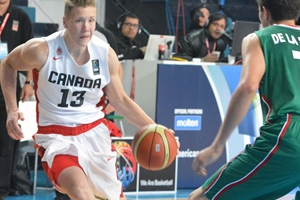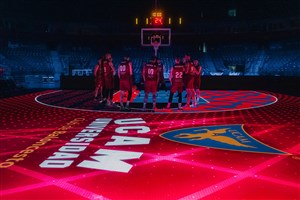
Asian teams will benefit from world-class competition
MANILA (Enzo Flojo's Asia on my Mind) - The Philippines, Iran and Japan will all participate in the the 2016 FIBA Olympic Qualifying Tournaments (OQT) that will comprise the final phase of qualifying for the 2016 Olympics in Rio De Janeiro, Brazil.
Despite finishing among the top four teams in the 2015 FIBA Asia Championship, all three Asian squads are significant underdogs in their respective pools, with the Philippines, by virtue of being a host country, perhaps having a slightly bigger chance compared to the other two countries to make a splash.
Nevertheless, despite having the odds stacked against them, the Philippines, Iran and Japan all stand to benefit from just being able to play at this level of competition. They will be going up against some of the very best teams in the world, and, as conventional wisdom goes, exposure to better competition is a valuable well of experience that should yield a lot of gains for the Asian sides.
Just marvel at the possibilities. Top Philippine players like Jayson Castro, June Mar Fajardo and Terrence Romeo will potentially go up against NBA players like Tony Parker of France, Steven Adams of New Zealand and Andrew Wiggins of Canada. Iran’s terrific trio of Hamed Haddadi, Samad Nikkhah Bahrami and Mahdi Kamrani will potentially square off with Gustavo Ayon of Mexico, Giannis Antetokounmpo of Greece and Mario Hezonja of Croatia. Japan, meanwhile, will possibly match wits with the likes of Czech Republic’s Jan Vesely and Latvia’s Kristaps Porzingis.
In case you missed it, all of those players opposing Asian teams have either been drafted or seen major minutes in the NBA. Their talent level is through the roof, especially when compared to the level of competition that can usually be found in the FIBA Asia Championship, FIBA Asia Cup or Asian Games. Hardly anyone in Asia is as quick and crafty as Parker, hardly anyone in Asia is as athletic as Antetokounmpo, and certainly nobody in Asia has the same sublime combination of size, agility and shooting as Porzingis.
Aside from the sheer spike in the skill level of their opponents, of course, the Asian squads will have to adjust to the various unique tactics, habits and skill combinations offered by teams outside of their home continent. Stereotypically, Asian teams aren’t very big (China and Iran are clear exceptions), so they compensate with speed and shooting. Countries like Korea, Japan, Chinese Taipei, the Philippines and even Lebanon have this style of play down to an art. When ranged against the balanced and tremendously deep rosters of the Europeans and Americans, as well as the long and freakishly athletic sides of the Africans, however, the Asians’ combo of speed and shooting has rarely proven to be enough to secure a victory.
This is why, in the case of the Philippines and Iran, having coaches with vast international experience will be tremendously beneficial. Gilas Pilipinas coach Tab Baldwin, who helmed New Zealand in their unforgettable run in the 2002 FIBA Basketball World Cup, and Team Melli coach Dirk Bauermann, who was Germany’s coach when they bagged the silver medal in EuroBasket 2005, both have a very good idea of what to expect at this level of international basketball, and they will surely prepare their wards to meet the imposing challenges that lie ahead. Japan, for their part, will come in with nearly all of their players having no prior experience at the world senior level. The exceptions are the Takeuchi twins — Joji and Kosuke — who played in the 2006 FIBA Basketball World Cup, which was hosted at home. This means that coach Kenji Hasegawa and his crew, even if they end up finishing at the bottom of their group, should bring home a much more seasoned and confident troop of relatively youthful players.
"I think basketball gods have smiled on Serbian basketball. In Belgrade OQT it's Serbia, Angola, Puerto Rico, Japan, Czech Republic, Latvia"
— JEFF TAYLOR (@JeffreyNTaylor) January 26, 2016
To be quite frank, all three Asian teams won’t be favored to make it out of their respective groups, much less book tickets to #Rio2016, but even if worse comes to worst and no Asian country earns a wild card Olympic berth, they will all come out of these tournaments the wiser and stronger. That should give them a serious competitive edge when it comes to this year’s FIBA Asia Challenge and next year’s FIBA Asia Cup that will feature teams from both Asia and Oceania.
Enzo Flojo
FIBA
FIBA's columnists write on a wide range of topics relating to basketball that are of interest to them. The opinions they express are their own and in no way reflect those of FIBA.
FIBA takes no responsibility and gives no guarantees, warranties or representations, implied or otherwise, for the content or accuracy of the content and opinion expressed in the above article.

















